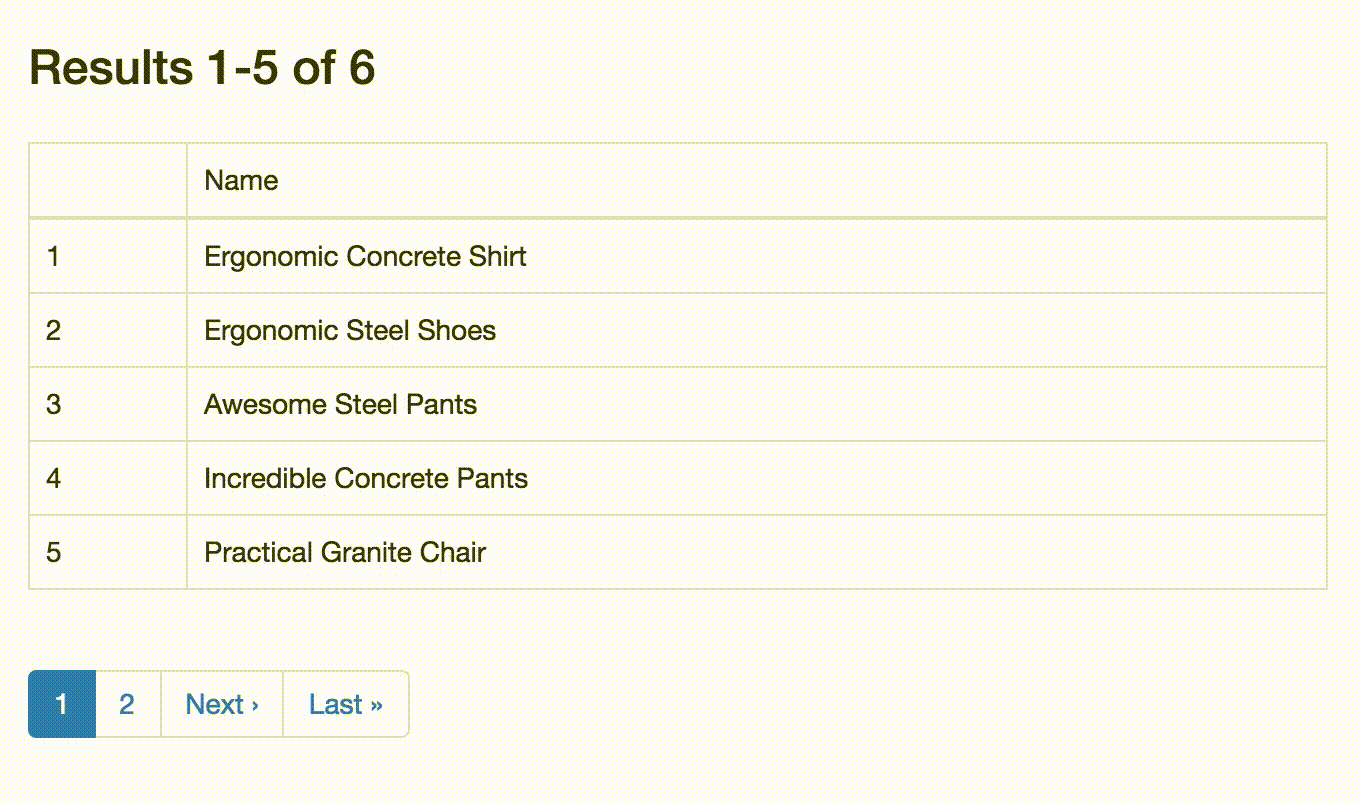Bringing that last result a little closer.
Developers may implement pagination to protect against overzealous result sizes. With responsible pagination settings a query that returns a large number of results can be displayed with fewer system resources on both the client and the server.
For queries that return few results but still trigger pagination, the client
must either navigate via a pagination component to the last page, or make
a modification to the per option if it's available.
Both of these operations are unnecessary, and we can enhance the client experience with an application designed to more intelligently handle smaller response sets.
Surfacing pagination prevents a second request to the server by sending the results that the client would ordinarily need to fetch on a subsequent page request if the number of results is under a threshold. The ideal implementation would prevent the client from flipping through pages when there's little need to do so.
tldr; When the result set is sufficiently small, not forcing the client to page through results can improve the experience.
Place kaminari-surface in your Gemfile (if you're sane you'll version it):
gem 'kaminari-surface'
and bundle:
$ bundle
Configure your query with Kaminari as usual:
results = User.page(1).per(50)
results.size # => 50
results.total_count # => 100
results.total_pages # => 2
Use the surface scope to enable surface pagination on a result set. The last
page will now include up to 50 more results:
results = User.page(1).per(50).surface(50)
results.size # => 100
results.total_count # => 100
results.total_pages # => 1
Fork, address the issue, and submit a pull request. You can reach me through the tracker or at [email protected].
ActiveRecord and DataMapper specs run with an in-memory schema, and don't need any additional setup.
Get a mongo server up and running on your local system (port 27017) so the
mongoid and mongo_mapper specs can run. This can be as simple as $ brew install mongodb.
$ bundle # to install the gems from the gemspec
$ bundle exec rspec # to feel the green
This release is a proof of concept and designed as a drop-in implementation that does not affect the existing kaminari project.
Directly modifying and extending kaminari would be a more maintainable solution. Once kinks are worked out here then a PR to the kaminari project makes a heck of a lot of sense.
There are some cases where the use of surfacing pagination may not be recommended. The following issues may pop up:
- The total number of results can no longer be determined by the client using the last page number or total pages number since the result count per page may vary.
- If a client workflow routinely involves visiting the last page of results then filtering through those last results may take longer.
